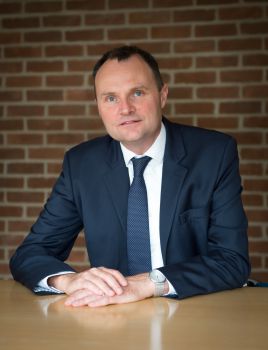View from the VC
By: Sean Armstrong
Last updated: Friday, 30 October 2020

Today, 30 October, the Vice Chancellor wrote to all staff. You can read the full email below:
As the number of cases of Coronavirus increase nationally and within Brighton & Hove, our lives are still dominated by the pandemic. If you haven’t already seen it, the University is now publishing updates every working day on the number of cases. Our data show that very few staff have contracted Covid-19 and we are as confident as it is possible to be that none of these have been contracted at work. Similarly, although we currently have around 100 students with Covid-19, the numbers are remaining stable, our students are well supported, and we have been able to trace known cases and understand the means of transmission. The information we hold indicates that none of these cases have been contracted in an education setting.
We do, however, remain overwhelmingly focused on the health and safety of our staff and students. It is possible Brighton & Hove will move from Tier One to Tier Two in the next few weeks and we are working closely with the local public health authorities, who are ready to react if this happens. In the event that it does, though, the University will remain open for essential services (as most universities in Tier Three areas are), including face to face teaching. The measures that we have in place mean that in-person teaching is as safe an activity as any can be at this time.
In the coming weeks, we will be sharing with you the results of the first in a series of student pulse surveys we will be carrying out this academic year. We are still analysing the data but a couple of things are immediately obvious. Unsurprisingly, our students are finding the current circumstances challenging: many don’t feel able to engage with one another and – overwhelmingly - they not only value the in-person elements of our blended learning approach but want more of it.
These two, together, show that this goes beyond pedagogy. For me, they signal that a basic human need – to connect – is not being fully met. And although the circumstances mean that it can’t be fully met at the moment, we all need to be sure that we are doing as much as we can towards this.
Now that we are into the swing of the new academic year, we must ensure that we continue to offer a true blended experience, with meaningful opportunities to learn in-person and remotely across our schools and degree programmes. How students feel about their experience this year is absolutely vital in its own right but also for our reputation and ability to attract students in the future.
Knowing the varying barriers that students face this year, you may recall that we offered the option of a January start date for some of our Masters programmes. This has proved to be an attractive proposition for many students, the vast majority international, who have been unable to travel to campus this term. We are looking forward to welcoming them onto their courses in the new year.
They will be joining a University that, despite our challenges, continues to make progress and celebrate successes.
This week, our PVC for Research, Keith Jones, and the founder scientists of Universal Quantum, Winfried Hensinger and Seb Weidt, signed the contract that signalled the official start of our spin-out partnership with the innovative quantum computing company born here at Sussex. Their goal to build the world’s first large-scale quantum computer is simple to understand but unbelievably difficult to achieve. Keith will be writing separately soon with his initial impressions of his time here and his exciting plans to support and enhance the University’s research environment.
I’m delighted to report the well-deserved recognition of two outstanding researchers in the field of global health. Gail Davey, a professor in the medical school, was awarded an OBE for her leading contributions to understanding and treating the tropical disease podoconiosis, and James Fairhead, an anthropologist in Global Studies, who was the subject of the latest episode of our Impacted podcast discussing his highly impactful research into Ebola, has been elected to the Academy of Social Sciences.
These are really fantastic developments and are welcome reminders that, while we can’t escape the realities that Covid-19 has visited upon us, we remain a high-quality institution and continue to have a promising future.
With best wishes,
Adam
